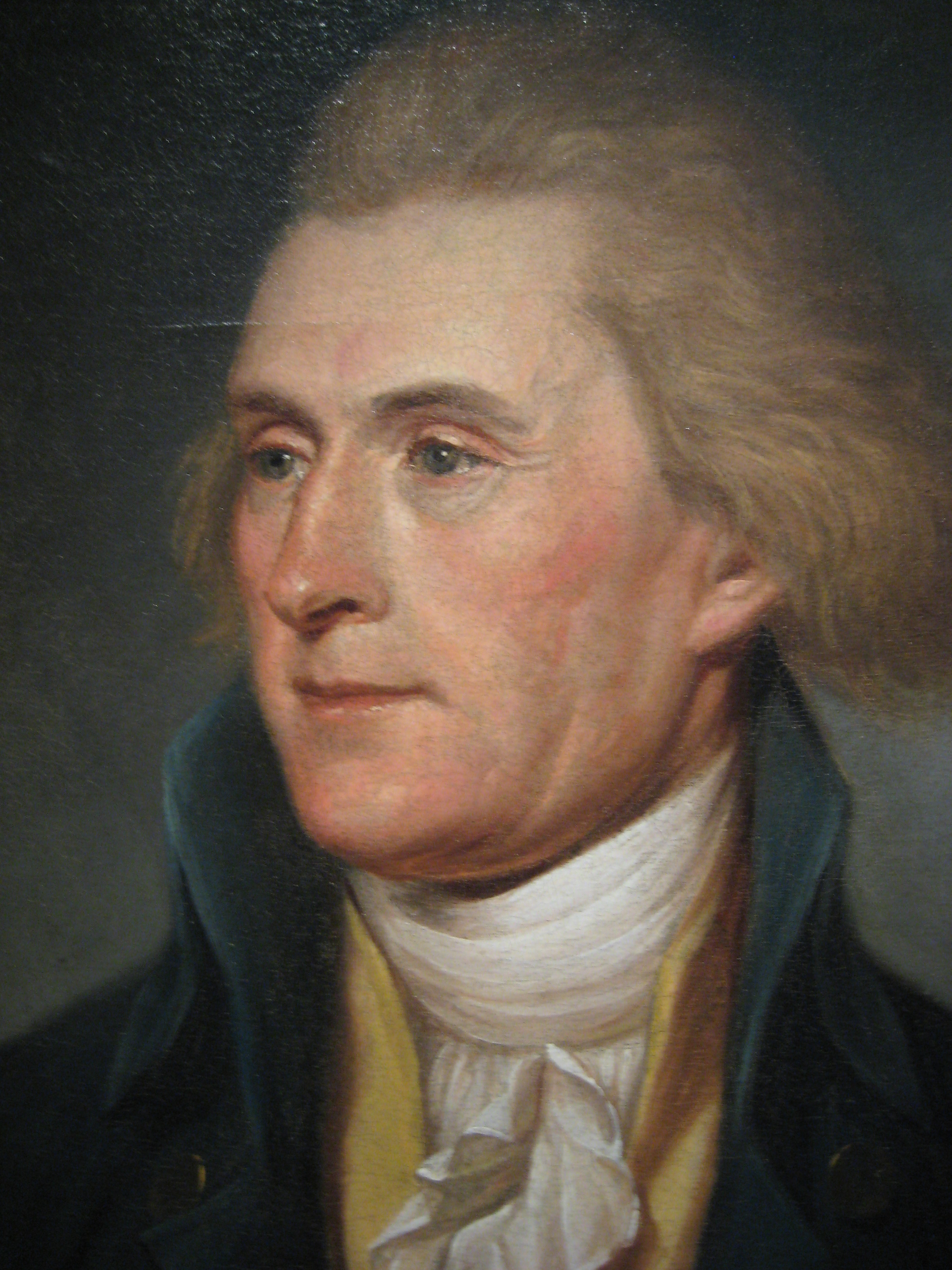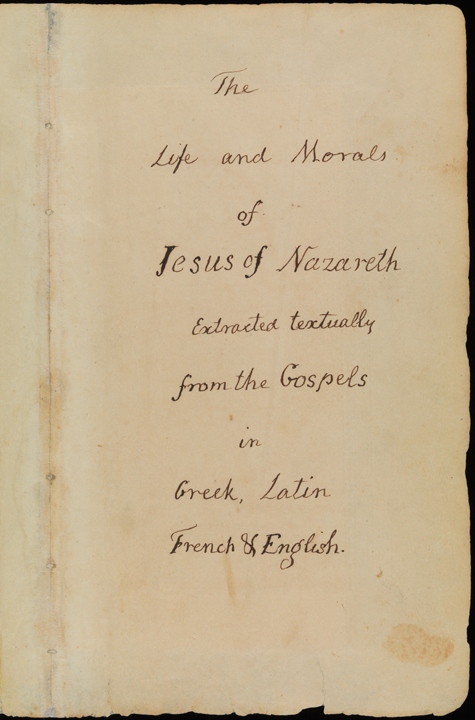 |
| Thomas Jefferson, 1791 |
 |
| Scan of the title page of original copy of The Life and Morals of Jesus of Nazareth (Jefferson Bible; c. 1820) |
In 1804, on one winter's evening, Jefferson took two Bibles from the shelf and opened them to the story of Jesus. Then he grabbed a knife, or maybe a razor, and extracted those parts of the Bible that he believed in and pasted them into a blank folio. He called the newly created book, “The Philosophy of Jesus of Nazareth.” The remaining parts of the two Bibles would have been unusable and were probably relegated to the rubbish pile. Afterwards, in a letter to John Adams, Jefferson wrote, "The worthy parts of the Bible were easily distinguishable from the worthless—“as distinguishable, as diamonds in a dunghill.”
In 1820, at the age of seventy-seven, Jefferson had retired from politics and was living at Monticello. This time, using six Bibles: two in English, two in French, and two containing both Latin and Greek, Jefferson cut up his bibles again, to create another edited version of the New Testament, in four languages.
Calling the book, “The Life and Morals of Jesus of Nazareth”, Jefferson left out the Bible's miracles, any reference that Jesus is God, the virgin birth and Jesus walking on water, or, multiplying loaves and fishes, and raising Lazarus from the dead. Jefferson’s book ends with Jesus being buried on Good Friday. No mention is made to the resurrection or Easter Sunday.
In a letter to his friend, William Short, Jefferson said that he wanted to separate the “lovely benevolence” from the “absurdity.” He also wrote to another friend, in regard to his bibles, that he was “in the habit of reading nightly from them before going to bed.”
In 1820, at the age of seventy-seven, Jefferson had retired from politics and was living at Monticello. This time, using six Bibles: two in English, two in French, and two containing both Latin and Greek, Jefferson cut up his bibles again, to create another edited version of the New Testament, in four languages.
Calling the book, “The Life and Morals of Jesus of Nazareth”, Jefferson left out the Bible's miracles, any reference that Jesus is God, the virgin birth and Jesus walking on water, or, multiplying loaves and fishes, and raising Lazarus from the dead. Jefferson’s book ends with Jesus being buried on Good Friday. No mention is made to the resurrection or Easter Sunday.
In a letter to his friend, William Short, Jefferson said that he wanted to separate the “lovely benevolence” from the “absurdity.” He also wrote to another friend, in regard to his bibles, that he was “in the habit of reading nightly from them before going to bed.”
| Monticello was the primary plantation of Thomas Jefferson |
Jefferson was a deist, which means that while he believed that God was responsible for the creation of the universe, he did not believe that this god interfered directly with the created world. Jefferson also rejected beliefs in the supernatural and miracles. Jefferson, however, did believe in Jesus as a philosopher and great moral teacher.
